Make some "I" time for yourself...

How journaling can help you through the crazy.
If you’re anything like me at this interesting moment in history, you’re feeling a tad uncertain about what’s next, with the more questions you ask, the more questions there are to answer.
My brain is always thinking about what I’m touching whilst thinking about not touching my face. And I’m thinking so much about keeping 1.5 meters away from the person in front of me that I can’t even watch an episode of The Crown without my subconscious mind yelling “too close people! How about a little social distancing your majesty!!!!!”
And all this on top of the usual stuff the world continues to throw at us when we’re not having a pandemic crisis.
It’s all a little mentally exhausting.
It’s the same when we have too much to remember… if the brain is trying to constantly remember to buy milk… and that reports due tomorrow… and I need to build the rocket ship from toilet rolls for my son’s school project… and the car’s due for a service… and the bins have to go out tonight. No wonder we get headaches sometimes. I’m just tired typing it.
In the book ‘Getting Things Done’ by David Allen he talks about the process of doing a mind sweep to clear the mind of all stuff that’s not important right now, so you can make space for what is important, or make space for creativity or stillness. What’s a mindsweep? It’s literally writing down everything that needs to be done to get it out of your head, and on to a piece of paper. Once it’s on paper, your mind can relax knowing it doesn’t have to keep reminding you every nanosecond.
So why’s this relevant? Well… the same process can help you make sense of all the thoughts, fears, doubts, conflicting ideas that keep bouncing around your head. And that’s where journaling comes in.
It’s time for a little “I” time.
I've lived through some terrible things in my life…
...some of which actually happened.
- Mark Twain
Why journaling helps.
As humans, we sometimes have a penchant for worrying. And in our minds, those worries are as real as the nose on your face. How many times have you worried about something, convinced that it was real, only for things to pan out just fine? Get your worries out of your head and onto paper and see if you don’t feel a bit better straight away.
Routine. Ritual. Habit (the good kind).Whatever you want to call it, developing any consistent positive practice is good for your mental health. It’s something you can feel good about. Something that you can look forward to. It’s a “good” constant in a chaotic world that you can lean on.
It makes sense of the chatter.Have you ever had to cut a piece of plywood or a piece of material into lots of different size pieces? You try to do the maths in your head, and see it in your mind, but it’s a little fuzzy on the detail and makes your brain hurt a little trying to work it all out.
Our thoughts, especially when we’re in a more constant state of stimulation like we are now, are different sizes and priorities that we’re trying to make sense of. It’s not until you get them down on paper that you can free up some space to get some clarity.
It gives your brain a rest.Just like your muscles tire out after a long workout, your brain is also a muscle that becomes exhausted. The fresher your mind, the fresher you’ll be.
It’s making time for you.Too often we’re there for other people. Our partners, our kids, our parents, our co-workers… that often there’s no time left for ‘I’ or “me”. Journaling is all about you and your thoughts. Take the time to look after both of them.
It’s for everybody, but blokes can really benefit.Without wanting to get into a gender war, women are generally more emotionally aware and open, whereas guys… go to the footy. With suicide rates of men higher than women around the globe, men can really benefit from sharing and making some sense of their thoughts and feelings in a safe space, which hopefully can lead to feeling more comfortable to open up with friends down the track.
So… how do I do it?
There’s no single ‘way’ to journal. Some people just freehand whatever comes to mind. Others create dot points of their thoughts. Sometimes it depends where you’re at emotionally and mentally, or what problem you’re trying to solve or what situation you find yourself in. The main thing is, there’s no right or wrong.
Here are three easy techniques that I’ve used that I’ve found helpful. I’ll share some more down the track.
Gratefulness
This a great place to start, and something you could incorporate into any journaling technique. Stopping and being thankful for the good things in our lives, which can sometimes be forgotten amongst the flotsam and jetsam of our everyday lives.
Bask in the glow of achievement.
There’ll be some days that you just feel on fire. That everything just flowed and went your way. Write that stuff down!! Capture it. How did you feel? What did you do? What did you eat? What did you do differently? Journaling can often be just about the troubles or stresses in our lives, but getting that good stuff down is just as important.
This technique is also good for reflection down the track. On those days that you’re NOT feeling in flow, you can look back on these journal entries for clues about what works for you when you need to fire.
Events and Reactions
This is more for reflecting on your day at the end of the day, but it can be done the next morning if that’s when you decide to journal.
Think about some key moments during your day and how you reacted to them. Did these events make you happy? If so, why? Or maybe you reacted in a way that you’re not proud of. If so… how would you like to react next time?
In a similar way… you could make a list of things that sapped your energy and note why you felt that way. Then make a list of 2-3 events that energised you. What did you do? How did you react? Why do you think you reacted that way?
By doing this daily, you’ll see patterns start to emerge and you can make a note to seek out more of the things that raise your energy/make you feel good, and avoid those things that don’t.
I would love to hear about your journaling techniques or experiences. Email me at pat@indepal.com.au or comment below to share.
Take care out there,
Pat
PS Get Free Shipping on Journals for you or a friend. Use the code JOURNAL2020 at checkout.







Leave a comment